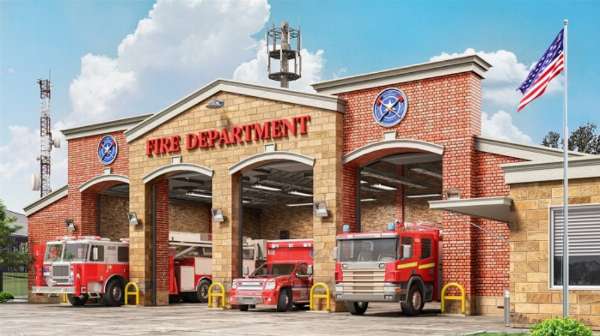Every city needs a few things: A police station, grocery store, and fire department are familiar sights. If you’re moving, you need to know which public services are available. Even if they’re the same basic amenities as your current city, they may not be the same quality you’re used to. Before you load the moving truck, make sure your new hometown has these public works.
School Districts
Not every neighborhood has its own school, and some may have several. It all depends on the size of the city. If you have children, research the school districts. What sports and extracurriculars do they offer? Does the district have a bus service or will your kids take public transportation? What is the graduation rate? Is there a kindergarten program? Depending on your family’s needs, you may need to look into private schooling or consider homeschooling.
Waste Management
“Waste management” is a fancy way of saying “garbage disposal.” (It’s also a specific brand of garbage disposal, which is totally not confusing.) Most municipalities provide their citizens with basic trash collection, but there may be some services they don’t offer. Does your new neighborhood collect recycling materials? If so, what kinds are allowed? You’ll also need to know what day the garbage truck comes. Depending on the city, you may be expected to use your own trash can.
Recreational Facilities

Public works aren’t just services to keep the town running; they also encompass features that enhance the lives of residents. Public pools are an excellent example. Not every city has one, but it offers residents a place to exercise and cool off in the summer. The features included in each recreational facility can add extra value. Your new neighborhood may have a small public park, but the neighboring town may have one with playground equipment, restrooms, and pavilions for rent.
It’s not just outdoor activities either. A community center is also considered a recreational facility. Residents may be able to join clubs or form one of their own. There may be an information center with free internet. It may even offer weekly dinners, providing a chance to socialize with your new neighbors.
Fire Department
Fire departments in the U.S. are run either on a citywide or countywide basis. In larger towns, there will be a dedicated team of trained firefighters on call at all times, and the station or firehouse may include barracks or bunks for the firefighters to stay in. For smaller communities, expect to see a volunteer fire department. These individuals are trained, but they offer their time and skills for free. They may even have to travel farther. If fires are a major concern, you’ll want to look for towns with trained firefighters.
City Hall
These may go by different names depending on your location — also look for a town hall or municipal building. The city hall typically holds the offices of local officials such as the mayor. Other government officials and politicians may stop by to host meetings or rallies. It may also be where you go to vote in state and local elections. If your city doesn’t have a city hall, then it’s more difficult to make your voice heard. Public forums are one of the easiest ways to share your opinion on matters related to your home. If there’s no city hall — or one that doesn’t host town hall meetings — consider if it’s worth the risk.
Post Office

This one may seem confusing. After all, doesn’t every town have its own post office? The truth is, no. That also goes for ZIP codes. Conversely, most major metropolitan cities have multiple post offices. Some places, such as colleges or large hospitals, may have dedicated post offices on campus.
Having a post office doesn’t necessarily mean mail delivery. In rural and urban areas, it’s common for residents to use a P.O. box instead of a mailbox at home. Post offices also offer a variety of vital services. They sell shipping supplies and stamps. Residents can update or purchase passports. Some even offer money services, such as debit and credit card payments.
Utilities
Electric companies may seem like a consumer choice, but it’s often predetermined by your location. This isn’t like cable or internet, where service is run individually. Each house or apartment is hooked up to the same power grid, effectively locking them to a certain provider. Look up what electric company powers your new home, and then research reviews. Nobody wants to be stuck with an electric company that’s notorious for outages.
Water is also set by city limits. Not every city has its own water authority. A township may provide water for several neighboring towns, or a small, waterfront community could have a water authority exclusive to it. You’re more likely to see water authorities in areas closer to bodies of water. Private water companies exist, but they’re uncommon and can be extremely expensive.
Then there’s energy and heating, which are frequently linked to an electric company but may have a separate charge. Residents have more freedom in their choice of heating. You can opt to use alternative methods, such as a fireplace, or you could install solar panels to cut back on electric costs.
Library
A public library is, in many ways, similar to a community center. In addition to the books, magazines, and other media patrons can borrow, most libraries have computers that are free to use and rooms that can be reserved for studying or group meetings. Staff may host seminars or clubs for all age groups, ranging from story time for kids to digital literacy lessons for seniors. Some libraries even branch out to include maker spaces — craft rooms with amenities such as 3D printers or vinyl cutters.
Health-Care Facilities

Much like schools, not every town has a hospital — and larger cities may have multiple. Most towns, however, have some sort of health-care facility. You may find a doctor’s office or branch of a larger hospital. Many nationwide pharmacies have physicians on staff for smaller ailments, such as earaches. Other practices may include dentists, physical therapists, and senior-care facilities.


